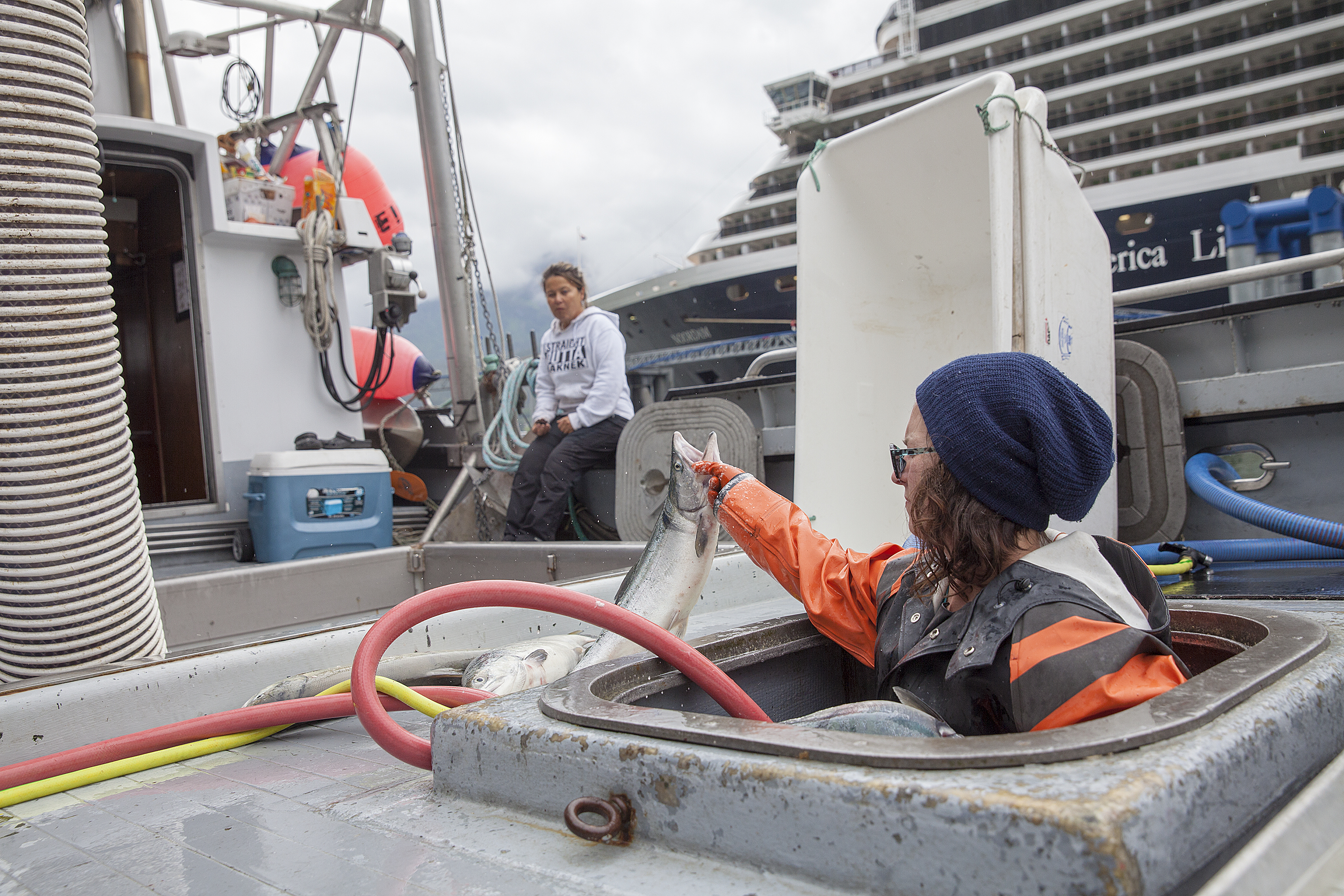
“Let’s hope this is one hell of an anomaly,” says Gunnar Knapp, professor emeritus of economics at the University of Alaska Anchorage.
The market for salmon this year is in flux; Knapp says that’s due to functional hurdles.
“If you want to categorize the bad news, the biggest factors are the sheer operating logistics for this industry in dealing with this virus, and keeping the workers safe,” he explains. “That’s one huge complexity. The second is the drastic drop-off in restaurant consumption, and the third is the drastic decline in people’s incomes. Those are the three major hits.”
In a normal year, most of the uncertainty in the salmon market comes from the run itself; how the harvest compares to the previous year and how processors will keep up.
“Heck, every year brings surprises in salmon markets and salmon fisheries,” says Knapp.
But with the COVID-19 pandemic this year, the market faces uncertainty on both the supply and demand sides. That means a lot of market factors are up in the air, making outcomes even more difficult to predict.
Brett Watson, a post-doctoral fellow at UAA, says one indicator can be found in the Commercial Fisheries Entry Commission, which lists permit prices.
“CFEC is reporting about a $13,000 dollar slip in Bristol Bay permit price sales from April to May,” he explains. “So what that says to me is that fishers’ short-run and long-run expectations have decreased their value of what they’re expecting to get out of the fishery.”
That drop has brought permit prices back to what they were in early 2019 — a change from the steady rise in prices over the past three years. The range of prices is also twice as large as it’s been in years.
Several Bristol Bay processors have reported cases of COVID-19 since processing workers started arriving in the bay. As the run picks up and the fleet starts catching fish, there are also questions about how those outbreaks will affect processing capability.
“I saw there was a report […] that there were another 12 positive confirmed cases in Dillingham,” Watson says. “That’s going to pose real challenges to the processors as they try to figure out how to engage in their process safely, and that could impose real costs for them.”
To summarize: On the supply side, the run is starting a little weak. Processors are taking on massive preventative costs to try and stave off plant outbreaks. Those costs might take the form of a lower base price for fishermen, or a higher retail price for consumers. Total fishing effort and this year’s processing capacity are still unknowns, adding another level of uncertainty.
On the demand side, the industry is facing a global recession: Reduced restaurant demand, lower household incomes, lower farmed salmon prices, and a hiccup in the Chinese market for farmed salmon. That could be an indicator for the wild market.
Economist Garrett Evridge with the McDowell Group said in an email that statewide salmon harvests so far are the smallest they’ve been in the last 12 years, with Bristol Bay harvest 92% lower than it was last year. Evridge did note that those numbers can change quickly as the season progresses.
Does everything point to disaster? Gunnar Knapp, the UAA professor emeritus, isn’t predicting anything.
“There’s a lot of not so great indications going into the season but in the longer run, there’s sort of a ‘good news’ story,” he says.
The long-term trend, Knapp said, is an increasing demand in the U.S. for salmon in general, and wild salmon in particular.
“The basic thing is there’s still this tremendously wonderful fish resource, if it’s well-managed and well-marketed and well-handled. Mother Nature willing,” he says.
Despite all the uncertainties facing the market this season, Knapp says they are all tied to the pandemic. If Bristol Bay weathers the economic storm this year, he hopes the market will continue to improve.
